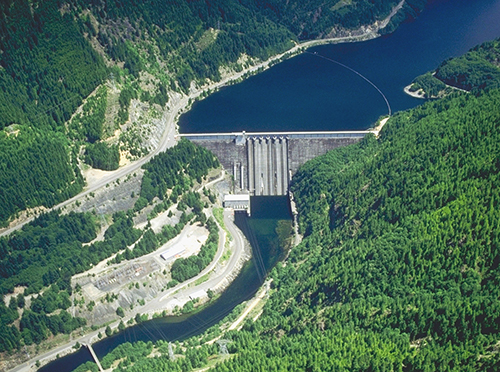Reporter for The Canyon Weekly
The fees that public and private landowners pay the Oregon Department of Forestry for fire protection are going up.
The higher fees stem from Senate Bill 762, the 2021 legislation that was designed to serve as a comprehensive wildfire preparedness and resiliency bill amid the fires that have plagued the state, including the Labor Day 2020 blazes that affected huge swathes of the Santiam Canyon.
The increased fire-protection capacity required by the bill led to a significant boost in the fees. For example in fiscal year 2022 the fee was $1.66 per acre.
For 2024 the fee will be $2.13 per acre. The fees apply “to land classified as forestland or grazing land by the county,” said Derek Gasperini, an ODF spokesman. “Once designated as forestland or rangeland, ODF is required to provide fire protection and pass a portion of the cost to landowners through assessments.”
The fees apply to the entire 16.2 million acres of public and private land protected by ODF. This includes 658,098 acres of property in the North Cascades District, which includes the Santiam Canyon.
The fees, which have been in place in some form since 1911, were partially offset in the first two years after the Labor Day fires by $15 million in legislative appropriations. However, that piece was not part of the state budget that came out of the 2023 Legislative session, meaning the higher 2024 rates will hit ratepayers harder.
“The one-time offset deferred the increased costs to public and private landowners,” Gasperini said. “However, landowners still paid assessments during fiscal year 2022 and 2023, but the assessments were subsidized by the one-time offset. Now that there is no offset provided by the legislature in ODF’s 2023–25 budget, the increased staff and equipment will be partially paid for by landowners, with the general fund still paying a portion, too.”
Gasperini added that the “landowner assessment must fund no more than 50 percent of a district’s fire protection budget.”
An effort led by Sen. Elizabeth Steiner (D-Portland area) is underway to restore the offsets but because the budget was already passed, the new fees, which took effect July 1, will remain unsubsidized unless the Legislature chooses to act in its 2024 session or in a future one.
A June 22 letter sent by Steiner and other Democratic leaders said “we have committed to convening a workgroup to propose revisions in the assessment and harvest tax structure to better address the cost of grazing and forest fire protection in ways that consider proportionate contributions from various stakeholders.”
The letter also said that “these concerns must be addressed thoroughly to find an equitable solution that takes in consideration the needs of various categories of landowners and timber companies while ensuring appropriate private contributions to critical fire-fighting efforts that will benefit Oregonians and stakeholders.”
Steiner will serve as the point person for collecting suggestions on who should be involved in the workgroup. No information was available on when the group might form or begin – and complete – its work.







